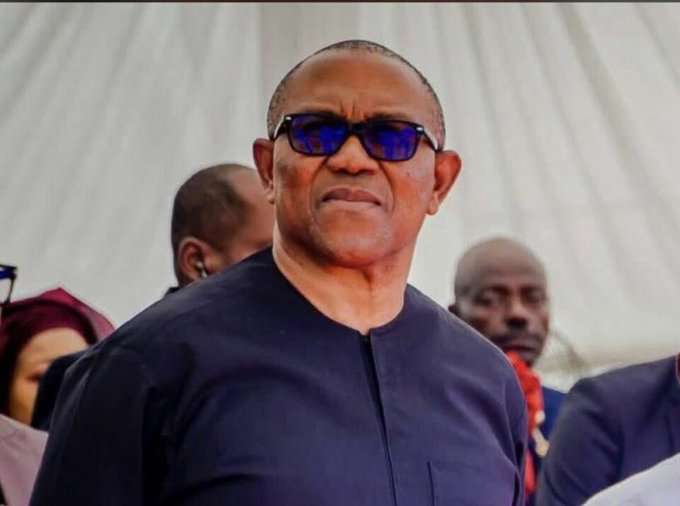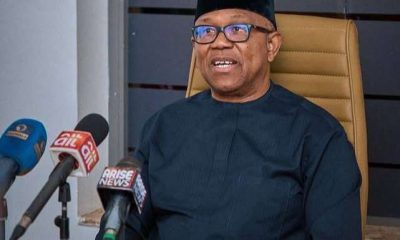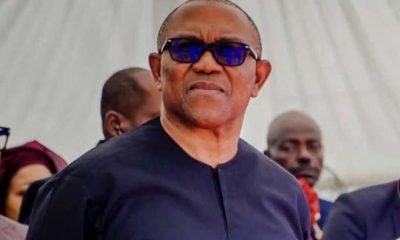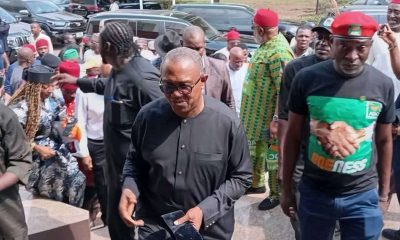Business
Obi challenges Tinubu on revenue gains: Nigerians must feel impact, not just figures

Former presidential candidate Peter Obi has urged President Bola Tinubu to ensure that Nigeria’s recently announced revenue milestone translates into tangible improvements in citizens’ lives, warning that economic stability should go beyond “figures announced at press conferences.”
Obi, in a statement on Wednesday, congratulated the President on achieving the nation’s annual revenue target by August but insisted that the excess revenue must be channeled into critical sectors such as health, education, and poverty alleviation.
“If indeed the economy stabilises as you declared, then Nigerians must feel it in their daily lives. Borrowings must stop now. Huge contractors’ bills, which are still owed, should be paid, and critical underfunded projects must now be funded,” Obi said.
He argued that true economic progress is reflected “in classrooms where children learn, in well-equipped labs, and in hospitals where citizens can receive quality care.”
“For the next four months, every value of our excess revenue should be deliberately channelled into the critical areas of development: health, education, and pulling people out of poverty. This must be done transparently, with verifiable and measurable outcomes. Anything less will mean that revenue growth has not translated into national growth,” Obi added, signing off with his familiar phrase, “A new Nigeria is possible.”
Presidency hails record performance, shift from oil dependence
Obi’s remarks followed a State House announcement that Nigeria recorded its strongest fiscal performance in recent history, mobilising ₦20.59 trillion in revenues between January and August 2025 — a 40.5% increase from ₦14.6 trillion in the same period of 2024.
According to the Presidency, non-oil revenues accounted for ₦15.69 trillion, representing three out of every four naira collected, marking a “fundamental shift away from oil dependence.”
President Tinubu, while addressing a delegation of the Buhari Organisation led by Senator Tanko Al-Makura, attributed the surge to reforms aimed at improving fiscal discipline, digitising tax administration, and tightening compliance.
“The Federal Government is no longer borrowing from local banks to buttress the strong fiscal performance since the start of the year,” Tinubu said.
The government also highlighted that monthly FAAC allocations to states and local governments hit a historic ₦2 trillion in July, giving subnational governments more resources to fund infrastructure, food security, and social services.
However, the Presidency acknowledged that the increased revenues do not yet match expenditure ambitions in education, health, and infrastructure.
Bayo Onanuga, Special Adviser to the President on Information and Strategy, stated: “Nigeria’s fiscal foundations are being reshaped. For the first time in decades, oil is no longer the dominant driver of government revenue. The combination of reforms, compliance, and digitisation powers a more resilient economy. The task ahead is to ensure that these gains are felt in the lives of our citizens and in better schools, hospitals, roads, and jobs.”
Key Highlights of the Revenue Report
Record revenues: ₦20.59 trillion mobilised in eight months, the highest in Nigeria’s history.
Non-oil dominance: ₦15.69 trillion from non-oil sources, showing structural reform progress.
Customs outperforms: ₦3.68 trillion collected in H1, exceeding targets by ₦390 billion.
FAAC windfall: States received ₦2 trillion in July allocations, the highest ever.












